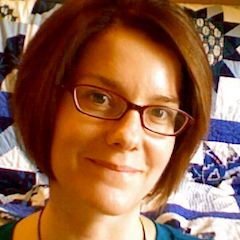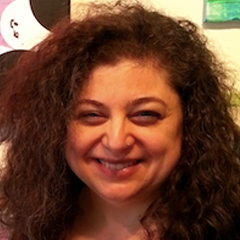
How and why the Creative Grief Studio came to life…
The following excerpt (click here) is from our January 2012 opening call that introduced the Creative Grief Studio to the world. In this recording, Cath and Kara share about their personal grief journeys, what creativity has meant to them, and their professional work backgrounds, as well as the story of how they came together to bring the Creative Grief Studio and their online Certification in Creative Grief Support to life.
Welcome and enjoy!
Why is social identity important?
We really care about social justice, so we teach a grief support approach that takes account of the ways that our social identities and social power might influence our loss, death, grief, and general life experiences and our meaning making after loss. We do this work because we have a vision for agency, belonging, and hope, for everyone in our living and in our grieving and dying. We don’t agree with colorblind and politically neutral stances that encourage grief support practitioners to look past differences in social identities. Instead, we believe that claiming our preferred social identities, as well as recognizing the social identities that get put onto us, and naming the visible and invisible effects of those social identities, is a much more effective way to facilitate agency, belonging, and hope for all. In this spirit, here’s a bit about us, Cath and Kara, the Co-Founders of The Creative Grief Studio, including our social identities.
About Cath Duncan (MSW)
 I live in Cape Town, South Africa, where I was born and raised. As a white South African, owing to the ongoing effects of colonialism, apartheid, and global systemic white supremacy, I experience the many benefits of significantly greater education, wealth, privilege, and power than most South Africans have. I have also lived in and traveled around the UK, Canada, and the USA, where my foreign status afforded me less privilege, power, and access.
I live in Cape Town, South Africa, where I was born and raised. As a white South African, owing to the ongoing effects of colonialism, apartheid, and global systemic white supremacy, I experience the many benefits of significantly greater education, wealth, privilege, and power than most South Africans have. I have also lived in and traveled around the UK, Canada, and the USA, where my foreign status afforded me less privilege, power, and access.
My husband and I became adoptive parents in 2013. Our son is Black. Being a transracial family and learning what it means to parent, protect, and love our son in a racist world continues to open my eyes to white supremacy and my own socialisation in racism.
My home language is English, I can also speak Afrikaans (albeit rather poorly), and I’m learning isiXhosa, the language of most Black South Africans in the Western Cape. Learning a new language has showed me the important role of language in culture, identity, a sense of belonging, and social power and access.
I’m a cisgender heterosexual woman in a monogamous marriage since 1999, with a cisgender heterosexual man. Despite this, my husband and I both find heteronormativity problematic in many ways, and try to ally for non-binary definitions of sex, gender, and sexuality. I was raised in the Christian faith, but no longer identify as a Christian.
I’m a “healthy” chronically ill person, living with the life-long health challenges and triumphs of kidney failure, kidney transplant, Mast Cell Activation Syndrome, and the side effects of the medications I have to take every day. I am legally classified as blind, with currently only about 30% vision left in my right eye and about 10% vision left in my left eye, and the future of my eyesight uncertain. I also use a hearing aid for low-tone deafness. However, because I enjoy generally good health and fitness (aside from the genetic mutations that keep trying to disable or kill me!), and because my illness and disabilities are mostly invisible, I generally pass as healthy and abled. (This has both benefits and disadvantages!) My white privilege and access to good medical treatment and disability aids has also buffered me from many of the hardest effects of chronic illness and disability. However, living with chronic illness and disability is one of my “outside of the dominant norm” experiences that both instructs and motivates me to learn more about the roles of social identity, privilege, and power in how people make sense of and live with loss and trauma.
My experiences with ill health, disability, and adoption provide me with daily opportunities to expand my appreciation and understanding of the many different kinds of loss and grief. I am also a bereaved parent, a Registered Clinical Social Worker with a background in child protection, trauma debriefing, and counseling for grief, burnout, anxiety, and depression, and I’m the author of the Remembering For Good Grief Workbook. You can learn more at CathDuncan.com.
Note: As of November 2019, Cath has exited from the day to day functions of The Creative Grief Studio. She will always be one of our Co-Founders and remains Guest Faculty in our Certification Program as well as being part of our Alumni spaces.
About Kara Jones (CAIC, CRMT, BA)
 I’m white, American born, cisgender woman with Italian heritage, and though I know all the curse words in Italian, truly, I only speak English. Since 1996, I’ve been in a monogamous, heterosexual commitment with a cisgender man who is Black and German. (Truth be told, I also know a few curse words in German, too.)
I’m white, American born, cisgender woman with Italian heritage, and though I know all the curse words in Italian, truly, I only speak English. Since 1996, I’ve been in a monogamous, heterosexual commitment with a cisgender man who is Black and German. (Truth be told, I also know a few curse words in German, too.)
With the help of academic scholarships, grants, and way too many loans, I managed to get a solid college education, but like most of my generation, that means I have debts I will take to my grave. I have experienced homelessness, but for the past 20 years we have been steady renters living in a community we were lovingly introduced to by a friend on Vashon Island, Washington.
While I was initially raised Roman Catholic, that changed when my mother divorced my father and the church ex-communicated us. I’ve never really trusted any religious organization since then. I do identify as a student of Buddhist philosophy and meditation practice though.
My biggest grief experiences came with the deaths of three babies at birth. I’m a mom who has living and dead children, mom in a blended family, and now a grandma, too.
My continued exploration of grief comes in around chronic illness. I have multiple chronic illness diagnoses (ME/CFS, PCOS, MCAS, and idiopathic angioedema etc), though some of what is happening with my health is still a mystery. Given our lousy healthcare system here in America, I’m not entirely sure the root cause will ever be found. Anxiety and depression are part of my experiences at times, too, as the mystery part of being chronically alive can get to me. For the most part, I pass as abled which, as Cath said above, has both advantages and disadvantages.
I’m a Certified Appreciative Inquiry and Whole Systems Coach, and a graduate of Carnegie Mellon University, holding double degrees in Literary and Cultural Theory and Creative Writing. I also hold a minor degree from Chatham College in Early Childhood Development. I interned for three years at Family Communications (FCI) on production of Mister Rogers Neighborhood back in the day. I have authored several books including Mrs. Duck and the Woman, Flash Of Life, and 1000 Permissions Granted. I have contributed to publications such as They Were Still Born, Journal of Family Social Work, Living With Grief, Elegy, and more. For more about my heARTwork, see GriefAndCreativity.com.
